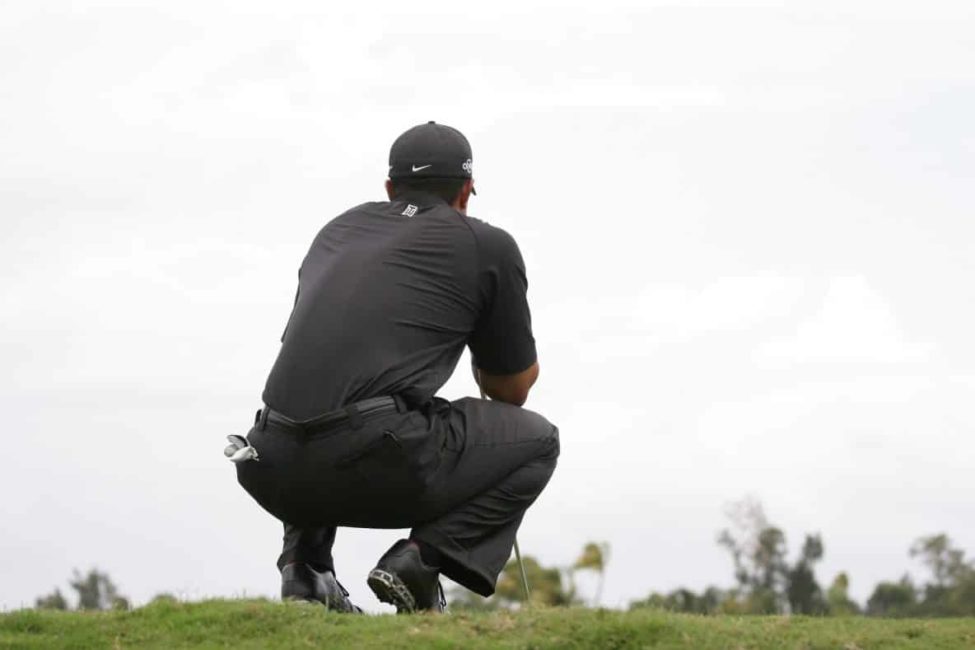He’s won three U.S. Open championships in his career, but this year, Tiger Woods’ focus will be set on something other than a trophy: drug rehab. The renowned golfer made headlines in late May for his DUI arrest in South Florida, which was followed by a custody issue with his ex-wife, Elin Nordegren; he now risks losing joint custody of his two children. It’s a common and unfortunate reality check for thousands of parents involved with substance misuse, and it’s what tipped the scale for Woods. He enrolled at a Jupiter rehab facility earlier this month for his addiction to prescription painkillers.
While most people were paying tribute to the fallen or firing up a grill this past Memorial Day, Woods spent part of his morning in handcuffs. He was arrested at 3 a.m. and charged with a DUI after he was seen driving erratically. Police dashcam video showed him stumbling, as if intoxicated, after he stepped out of his Mercedes Benz. He claimed his disorientation was caused by prescription medications, however, not by alcohol. His first court appearance for the incident is scheduled for July 5. He could face up to six months in prison and fees of up to $1,000, if convicted.
Woods was prescribed Vicodin (a painkiller drug) after undergoing fusion back surgery earlier this year, which was intended to alleviate pain in his leg and back. He also had surgeries on his knee and back over the past few years. These procedures caused a disc in his lower back to narrow severely, which is what led to the pain as well as sciatica. During this most recent surgery, the damaged disc was removed, and the operation was a success, according to his surgeon and physiotherapist. Reports state that hours before his May arrest, he mixed the prescribed Vicodin with Xanax (an anti-anxiety drug).

After being released from police custody, Woods issued a statement in which he promised to seek treatment. He is now keeping that promise. “I understand the severity of what I did, and I take full responsibility for my actions,” Woods stated. “I will do everything in my power to ensure this never happens again.”
The events surrounding his arrest caused a specific clause in his custody agreement with his ex-wife to surface. The clause states that Woods can retain 20 percent of custody of their 9-year-old daughter, Sam, and 8-year-old son, Charlie, only if he avoids any public scandal. Nordegren now fears for her children’s safety while they’re with their father, and is allegedly considering applying for full custody, a source claims.
In response to the risk of losing custody of his children, Woods made the decision to enroll at Lighthouse Detox at Jupiter Medical Center, a state-of-the-art drug and alcohol detox facility near his home. Sources state that the 14-time gold champion reserved the entire male inpatient unit for four weeks. Prior to checking in, Woods brought his children to the center so they could see where he would be living for the next month.
Although news of his arrest cast a negative light on him for the first time this year, Woods is certainly no stranger to rehab or scandal. After his highly publicized affairs in 2009, he spent six weeks at the Gentle Path center in Mississippi for sex addiction. He also enrolled at The Meadows treatment center in Wickenburg, Arizona in 2010 after battling addiction to Vicodin and Ambien. Now, his rehab treatment will focus primarily on his addiction to prescription pain pills.
Woods won 14 major golf championships between 1997 and 2008, and fans were hoping he would make a comeback in this year’s U.S. Open, held every year in June. But instead of working on his swing, he’ll be spending Father’s Day working to better himself and his family.

Woods’ DUI arrest serves as a reminder of the dangers of mixing and misusing prescription drugs. Aside from the physical risks, it can take a toll on families and friends as well.
If you or a loved one is currently battling an addiction to prescription drugs or any other substance, help is just a phone call away. The Recovery Village® has several locations throughout the country that provide a variety of programs to treat substance use disorder, among other disorders. You can learn about these treatment options by calling one of our intake coordinators. Addiction doesn’t have to be part of your present or your future. Make it part of your past.
The Recovery Village aims to improve the quality of life for people struggling with substance use or mental health disorder with fact-based content about the nature of behavioral health conditions, treatment options and their related outcomes. We publish material that is researched, cited, edited and reviewed by licensed medical professionals. The information we provide is not intended to be a substitute for professional medical advice, diagnosis or treatment. It should not be used in place of the advice of your physician or other qualified healthcare providers.